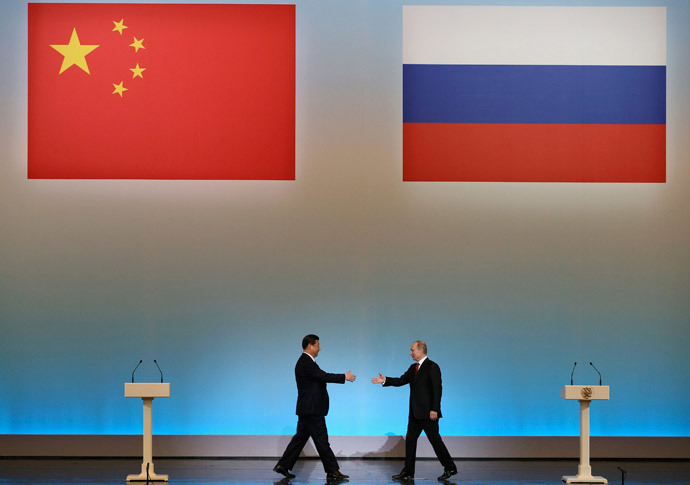On Saturday the 9th of May, Russia held her 70th Victory Day remembering the sacrifice of Russian soldiers in World War 2. Being an International event, leaders from around the world attended to pay homage to the fallen soldier. However, after Russian’s recent actions in Ukraine the majority of the Western leaders refused to attend the memorial. The Chinese President Xi Jinping not only attended but was made the guest of honor of the memorial. The Chinese and Russians are forming a new strong relationship with Chinese diplomats leaving Russia after signing record-breaking multi-billion dollar economic contracts. What were the previous relations between China and Russia like? What are the causes of this new relationship and what does this new relationship mean for both Russian and Chinese
Although sharing their communist heritage, the relationship between Russia and China has never been one of strong trust. Boarder disputes, ideological differences and China invading the USSR’s ally Vietnam cause a period of tension between these two countries between the periods of the late 20th century until the post-Mao era.
This new strengthening relationship has been catalyzed from Russia’s need for allies. After facing tough economic sanctions Russia has looked East to look for investors to be able to reduce its financial dependency upon the EU and the USA. President Putin described China as ‘our strategic partner’. However Russia was left surprised with Eastern investors not jumping to fill the gap left by the withdrawal of Western financiers. Recent contracts between China and Russia have delivered the economic commitment that Russia was searching for in the East. Furthermore the new cyber-pact and the recent navy drills carried out within the Mediterranean demonstrates to the West the Sino-Russian new found relationship has a almost threatening message.
“The integration of the Eurasian Economic Union and ‘Silk Road projects’ means reaching a new level of partnership and actually implies a common economic space on the continent,” Russian president Vladimir Putin is reported as saying after a meeting with Chinese Premier Xi Jinping. One of the schemes agreed for collaboration is the 800km long Moscow-Kazan High Speed Railway that will connect the two countries though Kazakhstan. According to The Moscow Times, a top speed of 400km per hour can be reached on the new line, which will cut the current 14-hour journey time by over 10 hours. China has pledged to invest $5.8bn into the project, which is estimated to cost over $20bn. An energy contract was also signed between the largest gas suppliers of the two nations – China National Petroleum Corporation (CNPC) and Gazprom. The state-owned companies have agreed upon the provision of 30bcm of gas to China per annum, via what is known as the Western route – the Altai. Once the project is complete, China will become Russia’s biggest customer for gas, considerably outstripping the 40bcm it currently supplies to Germany each year. Throughout these deals, which have effectively brought the two countries closer together, analysts have suggested that China has used their position of power as a bargaining mechanism. A large amount of the economic deals have been seen to be very good deals for China.
As both countries are becoming seemingly closer with the signing of new long term economic deals should result in economic prosperity which will benefit both countries in the future.

